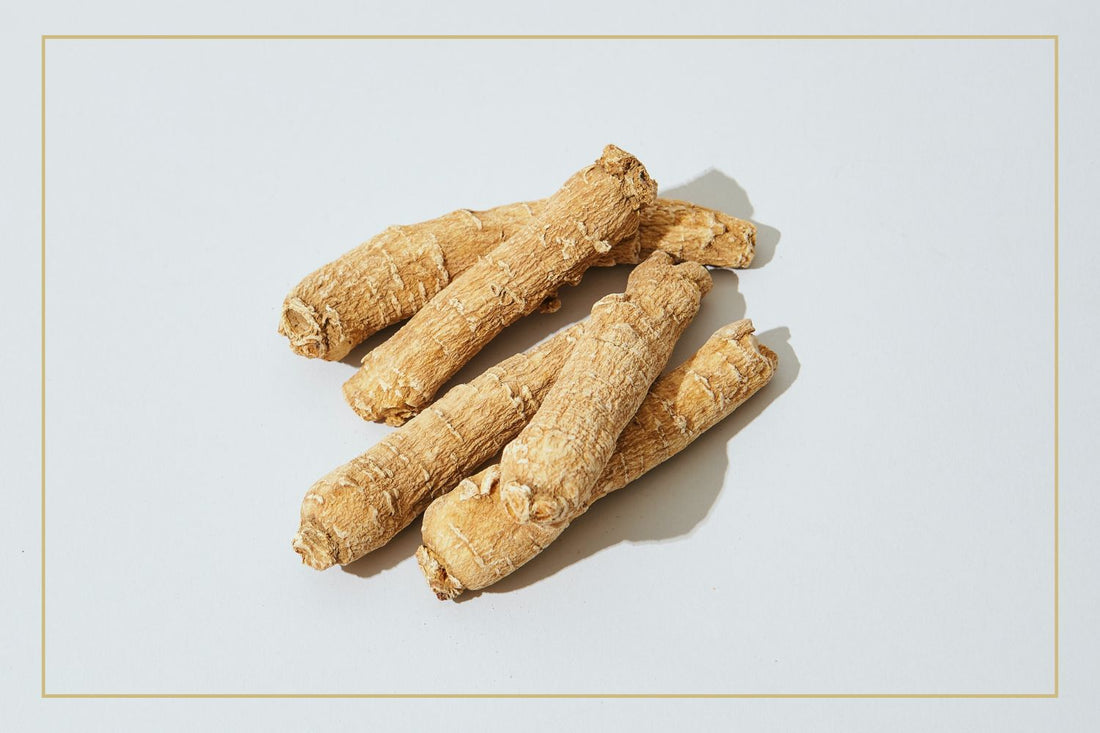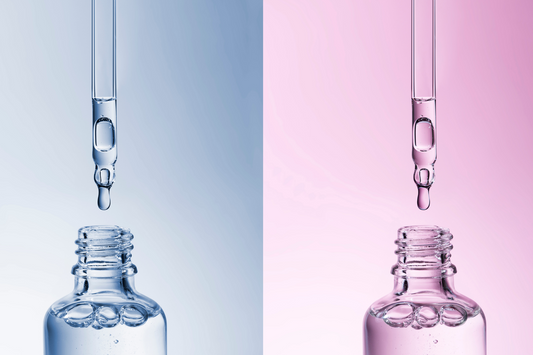If you’ve been looking for natural, healthy, and effective ways to help with hair growth, you might have come across ginseng for hair growth. Ginseng has a long history of being used in medicine and has been purported to have proven beneficial health effects; but what about the scientific and clinical evidence? What’s the real relationship between ginseng and hair growth? This article sheds some light on ginseng for hair growth so you can judge for yourself. But first, let’s discuss ginseng and its history.
What is ginseng and how does it help with health?
Ginseng is the root of plants in the genus Panax, and there are two main varieties known by their place of origin: Asian and American. Of the two, the Asian variety is more widely used, though scientists have found that there are distinct benefits between the two. These differences alter how ginseng interacts with the body - the Asian variety has been reported to have an invigorating effect, whereas the American variety has a more relaxing effect.
Ginseng has been reported to have many benefits for your health, such as reducing inflammation, building your immune system, regulating your blood sugar, reducing high blood pressure and fatigue, and lowering your risk for cancer. Ginseng has been even reported to boost the mental capacity to focus.
With all of ginseng’s health benefits, it’s no surprise that its popularity has exploded in recent years. It’s being distributed in 35 countries and sales of the root were expected to reach almost $11.7 billion by 2026.
The history of ginseng in medicine
Historically, ginseng was one of the most important herbal medicines across East Asia, particularly in China, Korea, and Japan, where scholars have been writing about its use since before 200 AD. It was estimated to have first been used around 4,500 years ago. In traditional Chinese medicine, the root is still being used today as a means to revitalize the body.
The Native Americans also used the American variety of the root in medicine; Ojibwe Midewiwin, spiritual leaders of the Anishinaabeg tribe who were skilled in medicine, used the root to treat digestive problems and to provide pain relief. The Muscogee people of Oklahoma also used ginseng to stop bleeding and in teas, to treat illnesses like respiratory disease and fever. The Meskwaki people of the Great Lakes even went so far as to call ginseng a “universal remedy” for any disease.
Today, ginseng has also made its way into the scientific literature: a recent study on ginseng and hair growth revealed that when mice with alopecia (a condition causing hair loss) were treated with ginseng, it led to 20% higher growth rates, as evidenced in the quantity and thickness of hair follicles.
Ginseng and hair growth
So does ginseng help with hair growth? In short, scientific evidence does suggest that it can help with hair growth, but the clinical evidence is limited. Additional studies have further investigated the mechanism of how ginseng works at the subcellular level, suggesting that ginseng helps hair growth by strengthening hair follicles, or the “root” of hair strands that anchor them to the scalp. The ginsenosides in ginseng also strengthens blood circulation to ensure that important nutrients get to your hair follicles.
Of the available clinical evidence, one often-cited study gave fifty people with Alopecia Areata, a condition causing patchy bald spot on the scalp, a ginseng treatment over twelve weeks with or without the conventional corticosteroid treatment. The results demonstrated that the people given the ginseng treatment showed much greater hair growth compared to the control group. Not only was hair growth impacted, but hair thickness and density also increased with the ginseng treatment group, demonstrating that there’s a positive correlation between ginseng and hair growth in the setting of alopecia areata, in combination with corticosteroids. Additional, statistically-powered, clinical evidence is needed before definitive conclusions can be made.
Keep in mind, though, that the way that the ginseng is extracted can dramatically impact its ability to keep your hair healthy. Ginseng is much more effective for hair loss when consumed than if you were to rub it on your scalp (with exceptions for specific topical serums that include it, as these companies extract ginseng in a way that’s impossible to do by yourself at home). The consistency at which ginseng can be extracted, and processed, also makes a huge impact on its ultimate effectiveness.
Conclusion
We hope you’ve learned something about the potential benefits of ginseng for hair growth and overall health as well as its context in medical history! The journey to healthier and more beautiful hair is not easy, but staying informed is one of the most important things you can do! Check out our blog to learn more about what ingredients can and can’t help with getting thicker, fuller hair!
Sources
- https://www.hairguard.com/science-of-ginseng/
- https://folklife.si.edu/magazine/mysterious-medicinal-economic-powers-american-ginseng
- https://www.sciencedirect.com/science/article/pii/S1226845322000331
- https://www.ncbi.nlm.nih.gov/pmc/articles/PMC3659626/
- https://www.ncbi.nlm.nih.gov/pmc/articles/PMC6163201/
- https://www.webmd.com/diet/supplement-guide-ginseng
- https://www.healthline.com/nutrition/ginseng-benefits
- https://www.bebeautiful.in/all-things-hair/everyday/3-benefits-of-ginseng-for-hair
- https://www.medicalnewstoday.com/articles/262982
- https://www.globenewswire.com/news-release/2022/06/09/2459936/0/en/Global-Ginseng-Market-to-Reach-11-7-Billion-by-2026.html





